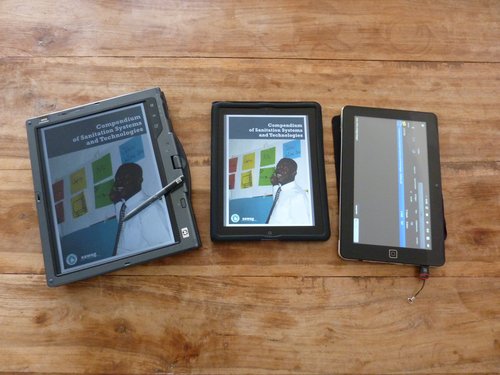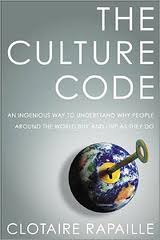![]()
Mein lieber Ilija Trojanow, mit dem Weltensammler hattest Du mich ja schon erreicht – dieser phantasievoll zusammengetragenen Biographie über Sir Richard Francis Burton, dem wahrscheinlich vielseitigsten Abenteurer und Kosmopoliten des viktorianischen Zeitalters. Ein Buch, dass sich ob des ständigen Wechsels der Erzählperspektive zum Ende hin im ostafrikanischen Schlamm wälzt und in meinem Bekanntenkreis anderer Afrikareisender teilweise schon nach 50 Seiten zur Seite gelegt wurde. Ein Buch, dass so viel Leidenschaft in sich trägt, dass es eines weiteren Bandes (“Nomade auf vier Kontinenten”) bedurfte, in dem das Universum und die Eigenarten des Herrn Burton näher beschrieben wurden. Schwierige Kost, so vermute ich, für all diejenigen, die auch im Zwiegespräch der Kulturen keinen Segen finden. Leidenschaft ist aber ein heimliches Dauerthema in meiner Welt, daher freut es mich umso mehr, in dieser beschriebenen Welt die Feinheiten zu erlesen, die den Herrn Burton wohl ausmachten.
Gefragt hatte ich Dich im Dezember 2006, im Goethe-Institut in Nairobi, nach der gemeinsamen Lesung mit Binyavanga Wainaina, über Deinen “Wechsel” zum Islam. Gelesen hatte ich den Weltensammler seinerzeit noch nicht – die wahre Motivation erschloss sich dann auch erst beim Lesen dieses überaus wunderbaren Interviews.
Ob es dem Burton in Ostafrika eigentlich gefallen hat, frage ich mich jetzt öfter. Ob er aufgrund der Eintönigkeit nicht nur für die Konversationen mit den Kaufleuten orientalischer Abstammung gelebt hat.
Vielleicht die gleiche Motivation, warum sich Binyavanga wohl derzeit am nigerianischen Nollywood-Fieber abarbeitet und auf Facebook Charaktere aus dem nächsten Projekt vorstellt. Ein kenianischer Schriftsteller – in Südafrika studiert, gearbeitet, über einen zynischen Artikel Berühmtheit erlangt; den Literaturbetrieb im Lande aufgewirbelt in den frühen 2000ern; die Hand, die ihn derzeit füttert, kritisierend, sich an einem modernen Afrika versucht – gar einem “interafrikanischen” Austausch, wie wir ihn vielleicht zuletzt beim CFA, bei Kwame Nrkrumah oder der Roamingvernetzung von Airtel Africa gesehen haben. Ein Schriftsteller, der ebenfalls zwischen den Welten lebt. “Nairobi people live in at least two different worlds”. Allein, er wohnt ja jetzt in den USA.

Nein, nein, dieses “Afrika” aus unserer Kindheit – es ist lange vorbei. Oder zumindest anders. Bei der GIZ vielleicht noch, in der “heilen Welt” einiger Auslandsdeutsche, die mit Hörspielen, dem BVB und dem Sonntag Tatort aufgewachsen sind und diese Werte jetzt ins Ausland tragen – überall dort, ja, das wirst Du sicherlich immer wieder erlebt haben im Ausland, bei Botschaftsempfängen und bei jungen DaF-Lektoren, da ist es noch so.
So wie Du es beschrieben hattest auf den ersten Seiten meiner neuesten Lektüre “Der entfesselte Globus” – eine Sammlung von Reportagen von Unterwegs. Und auf den ersten 12 Seiten sogleich die Beschreibung der deutschen “Community” in Nairobi.
Unserem Nairobi von damals, als die deutsche Community eine ähnliche bornierte Grundhaltung gegenüber dem Rest des Landes zeigte, wie sie wohl in ähnlicher Form nur Tom Hillenbrand (“Hamburg, keine Perle“) formuliert hatte (es muss ja für Daheimgebliebene nachvollziehbar sein) – ich vermute es ist nur noch schlimmer geworden. Alleine weil man in der vernetzten Gesellschaft (Mobilfunk! Satellitenfernsehen! Internet!) weniger Gemeinsamkeiten entdeckt. War die Community wohl damals noch eine Solche, ist es heute eher ein Zweckverbund.
Aber ich will ihr keinen Vorwurf machen – es gibt wahrlich introvertiertere Kulturen, die so dermaßen mit sich selbst beschäftigt sind, dass sie den externen Austausch nur dann wahrnehmen, wenn er neue Qualitäten ins Land spühlt.
Ob es den Weihnachtsstollen noch gibt – ich weiß es nicht. Zwischen uns liegen zehn Jahre Altersunterschied, kein so wirklich großer Unterschied im Nachhinein. Nairobi, mit seinen chronisch verstopften Straßen (Richard Branson stand letztens 2h im Stau), weil vier Mal so viele Fahrzeuge unterwegs wie eigentlich angebracht wären. Die deutsche Auslandsschule, die sich heute (!) nach all den Jahren endlich dazu durchringen konnte, die Verantwortung für die Domain von mir zu übernehmen; die Schule, die bei mir mehr als einmal verschissen hat (“es gibt kein schwarzes Christkind”); die Schule, in der mir mein Mathe- und Sportlehrer nach der allgemeinen deutschen Reifeprüfung nahelegte, “nichts mit Naturwissenschaften zu studieren”, und ich es dann trotzdem gemacht hatte; Nairobi, dass mich mit seinem iHub und meinen Freunden aus der kenianischen Blogosphere anlockt aber ob der Kosten für den westlichen Lebensstil und dem Reichtum der aufkommenden Mittelklasse eher abschreckt. All das, weil ja immer wieder die Frage nach der Rückkehr aufkommt. Gearbeitet habe ich in Kenia, das Land von einer anderen Seite kennengelernt. Das wahre Kenia kennengelernt, fernab der Hauptstadt. So wie Du Afrika bereist hattest. Ich erinnere mich noch gut an das Afrikanissimo Lesebuch, dieser erste Versuch der literarischen Annäherung. Gerne würde ich jetzt schreiben: ja, so war es damals, in den 1990er Jahren, als Kenia unter Moi noch fest im Griff der Mächte war, als es aus Afrika überwiegend Betroffenheitsliteratur gab – gespickt mit ein paar deutschen Reportagesammlungen der üblichen Journalisten, die sich mit einem Afrikabuch ein Denkmal setzen wollten (zurecht, hätte ich wohl auch so gemacht), aber keiner auch nur annähernd an Ryszard Kapuscinski herankam und das Afrikanissimo Buch der erste Schritt in die richtige Richtung war. Aber stattdessen schreibe ich nur: Lavington Green.
“Lavington Green”, die ersten beiden Worte im “entfesselten Globus”, die die Einkaufszeile beschreiben, wo früher zwei fette Punjabi Damen, Mukhwas-kauend, hinter der Kasse sitzend Anweisungen an ihre kenianischen Angestellten gegeben, sich dabei den Sari zurechtgerückt haben. Erinnerungen, die beim Lesen dieser Zeilen wiederkommen, die ich teilweise verdrängt hatte, weil das Einkaufszentrum in dieser Form nicht mehr existiert (der Sailsbury Supermarket aber wohl immer noch). Überhaupt, wir, die mit Forsty neben der Heilsarmee gewohnt haben, wo man jeden Sonntag Morgen die Uhr nach dem Trommelgesang stellen konnte…
Allein, allein, allein – das Buch hatte ich eigentlich ob der Reportagen aus Indien gekauft. Weil ich doch jetzt zum Ende der Woche mit einem indischen Kollegen aus Allahabad eine WG teilen werde – dem Kollegen, der sich unabhängig von mir Deinen Kumbh Mela Bildband gekauft hatte und wir so anfangs ins Gespräch kamen. “Same author!”, sagte ich ihm, und denke mir fortan “auf zu neuen Ufern!”.
![]()





 Following
Following